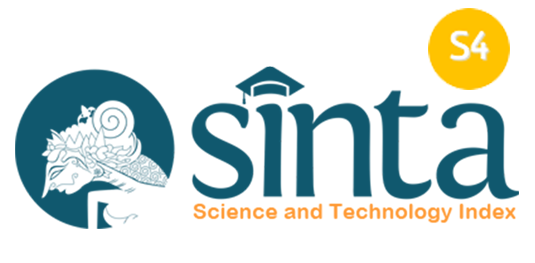Dynamics of Religious Thought in Pesantrens in Indonesia: Between Radicalism, Moderation, and Liberalism
 PDF Download: 9
PDF Download: 9
DOI:
https://doi.org/10.32665/alulya.v9i1.2958Keywords:
Liberalisme, Moderation, Pesantren, RadicalismAbstract
This research aims to track the evolution of thought and religious movements in Islamic boarding schools (pesantren) within the era of globalization. The approach employed in this study is literature review. The findings from this research indicate that radicalism and liberalism within a pesantren are greatly influenced by its leaders, whether they are the owners, kyai (religious leaders), or senior students (santri). If the leaders of a pesantren tend towards radical views, then the pesantren and its students are likely to also hold radical perspectives. Conversely, if the leaders maintain moderate attitudes, the pesantren and its students are inclined towards moderation, and in certain situations and times, may even lean towards liberalism. In the context of globalization, pesantren in Indonesia are no longer entirely dominated by traditional or fundamental-radical groups. New pesantrens established by other Islamic groups have altered the landscape of pesantren, each with its unique identity. This illustrates changes in the face and mindset of pesantren, which have become increasingly diverse over time due to the influence of globalization.
Downloads
References
REFERENCES
Abbas, M. B. (2021). Whose Islam?: the Western university and modern Islamic thought in Indonesia. Stanford University Press.
Alwi, Z., Parmitasari, R. D. A., & Syariati, A. (2021). An assessment on Islamic banking ethics through some salient points in the prophetic tradition. In Heliyon (Vol. 7, Issue 5). https://doi.org/10.1016/j.heliyon.2021.e07103
Anam, S., Degeng, I. N. S., Murtadho, N., & Kuswandi, D. (2019). The moral education and internalization of humanitarian values in pesantren. Journal for the Education of Gifted Young Scientists, 7(4). https://doi.org/10.17478/jegys.629726
ARAKE, L. (2023). HEGEMONY POLITICS AND GLOBALIZATION: AN EMPIRICAL STUDY IN THE PERSPECTIVE OF POLITICAL LAW IN INDONESIA. Russian Law Journal, 11(3).
Asror Yusuf, M., & Taufiq, A. (2020). The dynamic views of kiais in response to the government regulations for the development of pesantren. Qudus International Journal of Islamic Studies, 8(1). https://doi.org/10.21043/qijis.v8i1.6716
Assa’idi, S. (2021). The growth of pesantren in Indonesia as the islamic venue and social class status of santri. Eurasian Journal of Educational Research, 2021(93). https://doi.org/10.14689/EJER.2021.93.21
Baidowi, A., Salehudin, A., Mustaqim, A., Qudsy, S. Z., & Hak, N. (2021). Theology of health of quranic pesantren in the time of COVID-19. HTS Teologiese Studies / Theological Studies, 77(4). https://doi.org/10.4102/hts.v77i4.6452
Barrio, B. L. (2021). Understanding culturally responsive practices in teacher preparation: an avenue to address disproportionality in special education. Teaching Education, 32(4). https://doi.org/10.1080/10476210.2020.1796956
Blühdorn, I. (2007). Self-description, Self-deception, Simulation: A Systems-theoretical Perspective on Contemporary Discourses of Radical Change. Social Movement Studies, 6(1). https://doi.org/10.1080/14742830701251229
Bull, R. L. (2000). Teaching morality: Javanese islamic education in a globalizing era. Journal of Arabic and Islamic Studies, 3.
Chalmers, I. (2007). The Islamization of Southern Kalimantan: Sufi Spiritualism, Ethnic Identity, Political Activism. Studia Islamika, 14(3). https://doi.org/10.15408/sdi.v14i3.542
Efendy, R., Rahman, A., & Karim, A. R. (2023). Scientific Transformation of Islamic Boarding Schools through Role of Alums the Islamic Education Study Program. Al-Hayat: Journal of Islamic Education, 7(2), 355–369.
Falikul Isbah, M. (2020). Pesantren in the changing indonesian context: History and current developments. Qudus International Journal of Islamic Studies, 8(1). https://doi.org/10.21043/QIJIS.V8I1.5629
Farahat, O. (2023). Legal Maxims in Islamic Law: Concept, History and Application of Axioms of Juristic Accumulation, written by Necmettin Kızılkaya. Islamic Law and Society, 30(4), 484–488.
Hakim, L. N. (2023). Islamism and Its Hegemonic Failure in Democratising Indonesia. In Islamism and the Quest for Hegemony in Indonesia (pp. 145–196). Springer.
Hatch, J. A. (2023). Doing qualitative research in education settings. State university of New York press.
Hefner, R. W. (2009). Islamic schools, social movements, and democracy in Indonesia. Making Modern Muslims: The Politics of Islamic Education in Southeast Asia, 55–105.
Hefner, R. W. (2023). Islam and Citizenship in Indonesia: Democracy and the Quest for an Inclusive Public Ethics. Taylor & Francis.
Hidayah, S. N. (2021). Pesantren for middle-class muslims in Indonesia (between religious commodification and pious neoliberalism). Qudus International Journal of Islamic Studies, 9(1). https://doi.org/10.21043/QIJIS.V9I1.7641
Hidayat, M. A., Suyanto, B., Sugihartati, R., Sirry, M., & Srimulyo, K. (2020). Sociomental of Intolerance: Explaining the Socio Cognitive Dimensions of Religious Intolerance Among Indonesian Youths. Talent Development & Excellence, 12(1).
Huda, M. C., Yusriyadi, Y., & Thohir, M. (2020). Perspectives and movement of Nadlatul Ulama (NU) in counter-terrorism. International Journal of Psychosocial Rehabilitation, 24(2). https://doi.org/10.37200/IJPR/V24I2/PR200462
Ibrahim, A. (2022). Contemporary Islamic discourse in the Malay-Indonesian world: critical perspectives. Strategic Information and Research Development Centre.
Ishaq, I., & Ridwan, M. (2023). A study of umar bin Khatab’s Ijtihad in an effort to formulate Islamic law reform. Cogent Social Sciences, 9(2), 2265522.
Kawakip, A. N. (2020). Globalization and islamic educational challenges: Views from east javanese pesantren. Ulumuna, 24(1). https://doi.org/10.20414/ujis.v24i1.385
Kersten, C. (2009). Indonesia’s New Muslim Intellectuals. Religion Compass, 3(6). https://doi.org/10.1111/j.1749-8171.2009.00187.x
Kholili, Y. (2021). Challenges for Pesantren in the Revolution Era of Society 5.0. AMCA Journal of Religion and Society, 1(1). https://doi.org/10.51773/ajrs.v1i1.33
Kholish, M. A. (2021). Menyemai Pendidikan Fikih Beyond The Wall Menumbuhkan Living Toleransi di Tengah Kebinekaan Mazhab Fikih di Indonesia. Inteligensia Media (Kelompok Intrans Publishing).
Komariah, N., & Nihayah, I. (2023). Improving The Personality Character of Students Through Learning Islamic Religious Education. At-Tadzkir: Islamic Education Journal, 2(1), 65–77.
Kosim, M., Muqoddam, F., Mubarok, F., & Laila, N. Q. (2023). The dynamics of Islamic education policies in Indonesia. Cogent Education, 10(1). https://doi.org/10.1080/2331186X.2023.2172930
Latif, M., & Hafid, E. (2021). multicultural attitudes in an Islamic boarding school of South Sulawesi–Indonesia. Cogent Education, 8(1). https://doi.org/10.1080/2331186X.2021.1968736
Lukens-Bull, R. (2005). A peaceful jihad: Negotiating identity and modernity in Muslim Java. Springer.
Lukens-Bull, R. A. (1970). Teaching Morality: Javanese Islamic Education in a Globalizing Era. Journal of Arabic and Islamic Studies, 3. https://doi.org/10.5617/jais.4554
Mahardhani, A. J., Nawiruddin, N., Jalaluddin, J., Julhadi, J., & Muta’allim, M. (2023). The Kyai’s Position in Rural Local Democracy Based on Patronage Politics at Tapal Kuda. Muslim Heritage, 8(1). https://doi.org/10.21154/muslimheritage.v8i1.6004
Marlow, C. R. (2023). Research methods for generalist social work. Waveland Press.
Maxwell, B., Sharples, J., & Coldwell, M. (2022). Developing a systems-based approach to research use in education. Review of Education, 10(3). https://doi.org/10.1002/rev3.3368
McCutcheon, R. T. (2023). Critics not caretakers: Redescribing the public study of religion. Taylor & Francis.
Miliopoulos, L. (2013). The Revolutionary Global Islamism - Politicized or Political Religion? Applying Eric Voegelin’s Theory to the Dynamics of Political Islam. Religion Compass, 7(4). https://doi.org/10.1111/rec3.12035
Muadi, S. (2020). Pesantren Education in an Effort to Control Radicalism. Palarch’s Journal of Archaeology of Egypt/Egyptology, 17(7).
Ni’am, S. (2015). Pesantren: the miniature of moderate Islam in Indonesia. Indonesian Journal of Islam and Muslim Societies, 5(1), 111–134.
Nurtawab, E., & Wahyudi, D. (2022). Restructuring Traditional Islamic Education in Indonesia: Challenges for Pesantren Institution. Studia Islamika, 29(1). https://doi.org/10.36712/sdi.v29i1.17414
Peels, R. (2023). Scientism and scientific fundamentalism: what science can learn from mainstream religion. Interdisciplinary Science Reviews, 48(2). https://doi.org/10.1080/03080188.2022.2152246
Pohl, F. (2006). Islamic education and civil society: Reflections on the pesantren tradition in contemporary Indonesia. Comparative Education Review, 50(3), 389–409.
Rasyid, H., Abd.Shomad, A. B., Hidayatulloh, H., Kamarusdiana, K., & Yakin, S. (2022). Multicultural Education in Islamic Boarding School. TARBIYA: Journal of Education in Muslim Society, 9(1). https://doi.org/10.15408/tjems.v9i1.29071
Renaningtyas, P. C., Ramlan, S. R., & Ghony, D. (2023). Learning the Values of Multicultural Islamic Education as an Effort to Solve Santri Delinquency. IJIBS, 1(1).
Rinaldo, R. (2013). Mobilizing piety: Islam and feminism in Indonesia. Oxford University Press.
Robinson, K. (2020). Islamic cosmopolitics, human rights and anti-violence strategies in Indonesia. In Anthropology and the new cosmopolitanism (pp. 111–133). Routledge.
Rocco, T. S., Plakhotnik, M. S., McGill, C. M., Huyler, D., & Collins, J. C. (2023). Conducting and writing a structured literature review in human resource development. Human Resource Development Review, 22(1), 104–125.
Rodriguez, D. G. (2023). Gender, Sexuality and Islam in Contemporary Indonesia: Queer Muslims and Their Allies. Taylor & Francis.
Rohman, A., & Muhtamiroh, S. (2022). Shaping the Santri’s Inclusive Attitudes through Learning in Pesantren: A Case Study of Pesantren Al-Anwar Sarang Rembang Indonesia. Journal of Educational and Social Research, 12(2). https://doi.org/10.36941/jesr-2022-0058
Roqib, M. (2021). Increasing social class through islamic boarding schools in Indonesia. Journal of Social Studies Education Research, 12(2).
Saada, N. (2023). Educating for global citizenship in religious education: Islamic perspective. International Journal of Educational Development, 103, 102894.
Saeed, A. (2005). Interpreting the Qur’an: towards a contemporary approach. Routledge.
Said, A. A., Funk, N. C., & Sharify-Funk, M. (2022). Making Peace with Islam. In Abdul Aziz Said: A Pioneer in Peace, Intercultural Dialogue, and Cooperative Global Politics: With a Foreword by Mohammed Abu-Nimer and Prefaces by Nathan C. Funk and Meena Sharify-Funk (pp. 311–370). Springer.
Sirry, M. (2020). Muslim Student Radicalism and Self-Deradicalization in Indonesia. Islam and Christian-Muslim Relations, 31(2). https://doi.org/10.1080/09596410.2020.1770665
Sirry, M., Suyanto, B., Sugihartati, R., Hidayat, M. A., & Srimulyo, K. (2022). Fragile civility and the seeds of conflict among youth in contemporary Indonesia. Asian Journal of Comparative Politics, 7(4), 988–1007.
Sukamto, A., & Pramono, R. (2020). The Roots of Conflicts between Muslims and Christians in Indonesia in 1995–1997. Transformation, 37(3). https://doi.org/10.1177/0265378820937722
Suliswiyadi, Pawenang, S., Imron, & Tantowi, A. (2020). Stigmatization Pesantren Radicalism-Terrorism: An Analysis of Curriculum Supervision Dysfunction. Test Engineering and Management, 83.
Suprajitno, S., & Kurniawan, B. (2022). Chinese Language Investment: Pesantren and Social Reproduction Challenges. Jordan Journal of Modern Languages and Literatures, 14(4). https://doi.org/10.47012/jjmll.14.4.3
Suyanto, B. (2020). Habitus of institutional education and development in intolerance attitude among students. Talent Development & Excellence, 12(1), 1965–1979.
Suyanto, B., Sirry, M., & Sugihartati, R. (2022). Pseudo-radicalism and the de-radicalization of educated youth in Indonesia. Studies in Conflict & Terrorism, 45(2), 153–172.
Syahril, F. (2023). The Psychological Influence of Contextual Teaching and Learning Models on Students’ Social Cohesion Attitudes. Journal for ReAttach Therapy and Developmental Diversities, 6(10s (2)), 514–519.
Syamsul, M. (2018). Education as a Foundation of Humanity: Learning from the Pedagogy of Pesantren in Indonesia. Journal of Social Studies Education Research, 9(2), 104–123.
Syarifah, A. U. (2023). The Role of Islamic Boarding Schools in the Digital Age. International Conference on Islamic Studies (ICIS), 195–204.
Thoyib, M. (2019). Pesantren and Contemporary Multicultural Islamic Education: Empowering plurality toward realizing social harmony and peace in Indonesia. Social and Humaniora Research Symposium (SoRes 2018), 543–551.
Tolchah, M., & Mu’ammar, M. A. (2019). Islamic education in the globalization era; challenges, opportunities, and contribution of islamic education in indonesia. Humanities and Social Sciences Reviews, 7(4). https://doi.org/10.18510/hssr.2019.74141
Tröhler, D. (2023). Comparative education or epistemological power games for world domination. Comparative Education, 1–17.
Warnk, H. (2009). Alternative Education or Teaching Radicalism? New Literature on Islamic Education in Southeast Asia. Journal of Current Southeast Asian Affairs, 28(4). https://doi.org/10.1177/186810340902800406
Williams, D. U. (2023). Interfaith Dialogue, Peacebuilding, and Sustainable Development in Nigeria: A Case of the Nigeria Inter-Religious Council (NIREC). In The Palgrave Handbook of Religion, Peacebuilding, and Development in Africa (pp. 553–568). Springer.
Yahya, I., & Sahidin, S. (2022). Relation of religion and practical politics: Contextual adoption of constitutional Islamic jurisprudence for Muslim clerics in Indonesia. HTS Teologiese Studies / Theological Studies, 78(1). https://doi.org/10.4102/HTS.V78I1.7405
YAZDANI, A. (2020). The culture of peace and religious tolerance from an islamic perspective. Veritas, 47. https://doi.org/10.4067/S0718-92732020000300151
Yumitro, G., Abdullahi Abdelsalam, E., & Farhana Mohamad Shukri, S. (2020). MIDDLE EAST LINK OF TERRORIST THREATS FROM THE PERSPECTIVE OF PESANTREN IN INDONESIA: CASE STUDY IN THE AREA OF MALANG. Humanities & Social Sciences Reviews, 8(3). https://doi.org/10.18510/hssr.2020.8355
Yumitro, G., & Estu Kurniawati, D. (2020). GOVERNMENT AND PESANTREN COPING WITH TERRORISM ISSUE IN MALANG: A Collaboration Model. JOURNAL OF CONTEMPORARY ISLAM AND MUSLIM SOCIETIES, 4(2).
ZAMZAMI, M., NISOK, S. R., A’LA, A. B. D., & MUKAFFA, Z. (n.d.). Mainstreaming Religious Moderation in the Digital Space: An Examination of Islami. co Web Portal in the Perspective of Jürgen Habermas’ Communicative Rationality.
Zarkasyi, H. F. (2020). Imam Zarkasyi’s modernization of pesantren in Indonesia: (A case study of darussalam gontor). Qudus International Journal of Islamic Studies, 8(1). https://doi.org/10.21043/QIJIS.V8I1.5760
Zuhdi, M. (2014). Islamic Education in Southeast Asia in The Era Of AEC: Prospects and Challenges. JICSA (Journal of Islamic Civilization in Southeast Asia), 3(2).
Downloads
Published
How to Cite
Issue
Section
License
Copyright (c) 2024 Siti Khoiriyah, Aditia Muhammad Noor, Abdullah Malik Ibrahim

This work is licensed under a Creative Commons Attribution 4.0 International License.
 PDF Download: 9
PDF Download: 9













